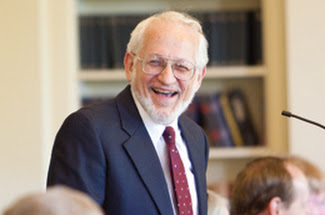 The narratives of Scripture are not simply interesting stories to inform, entertain, or edify us. They aim to engage, liberate, convert, and transform us. Their purpose is to tell what God has done for us and to invite us to enter into the new freedom that is ours in Christ. They make truth claims about God and about the world in relation to God, and they call for our personal response. Only as these narratives of the activity of God intersect our own lives, personally and corporately, opening us to a new relationship to God, a new identity, a new life, and a new mission, do they become for us genuine media of the revelation of God (Faith Seeking Understanding 3rd edition, 39).
The narratives of Scripture are not simply interesting stories to inform, entertain, or edify us. They aim to engage, liberate, convert, and transform us. Their purpose is to tell what God has done for us and to invite us to enter into the new freedom that is ours in Christ. They make truth claims about God and about the world in relation to God, and they call for our personal response. Only as these narratives of the activity of God intersect our own lives, personally and corporately, opening us to a new relationship to God, a new identity, a new life, and a new mission, do they become for us genuine media of the revelation of God (Faith Seeking Understanding 3rd edition, 39).
Daniel Migliore’s chapter on revelation is a study in theological clarity. He defines revelation as God’s self-disclosure in Christ narrated in Scripture. He models revelation as analogous to interpersonal communication, whereby another may become known to us through the persistent patterns seen in their activity, through their promises, and the story in which their character is narrated. Scripture plays an essential and irreplaceable role in communicating divine revelation, while in and of itself Scripture is not revelation but witnesses to the revelation given in God’s redemptive activity in Israel and Christ.
In the citation above, some of Migliore’s commitments are evident. Scripture aims at human liberation and transformation, announcing the redemptive work of God on behalf of all. Yet God’s activity calls for personal response; revelation has both an objective and subjective aspect. Scripture becomes a medium of revelation as it intersects and opens our lives in and through the power and work of the Holy Spirit. Revelation must come to fulfilment otherwise it is not revelation proper, for revelation is not simply the provision of information. Revelation is salvific and transformative, conferring a new identity, life and mission.
Yet Migliore also insists that “the biblical narrative of God’s self-disclosure is an unfinished narrative. It remains open…” (39, original emphasis). Is Migliore saying that Scripture is unfinished, that revelation also is unfinished, that new revelation might be given in the present age that has equal authority to that given in Scripture, or which may even surpass Scripture? He does not say so. He does say that God “continues to work by the Holy Spirit to illuminate and complete the narrative.” His intent is to honour the divine freedom, insisting that God’s self-revelation never becomes our “fixed possession.”
The role of Scripture as a means of revelation is central, and calls for free human response.
On the one hand, there can be no reception of the revelation of God in Christ apart from attentive and trustful reading and hearing of the witness of Scripture in company with other members of the people of God. Only in the context of faith, prayer, proclamation, sacramental life, and service of the church does the transforming power of Jesus Christ attested by Scripture become effective for us. On the other hand, there is always a need for critical appropriation of the revelation of God in Christ as mediated to us by Scripture and the proclamation and life of the church (43).
Migliore insists that the people of God be “active and responsible recipients” of revelation, practising legitimate interpretation informed by a christological hermeneutic. Perhaps most important for Migliore is “the new freedom in Christ” which is to guide all interpretation of Scripture in order to “resist every form of bondage, including those that may be supported by certain elements of Scripture and church teaching.” So important is this hermeneutical lens that in his chapter on the authority of Scripture he insists that,
A major task of theology today is to recover a liberative understanding of the authority of Scripture. Toward this end I will contend that the authority of Scripture has to be understood in relation to its central content and its particular function within the community of faith. Scripture is the unique and irreplaceable witness to the liberating and reconciling activity of God in the history of Israel and supremely in Jesus Christ (46).
But this function and power of Scripture can never simply be assumed:
Revelation can never be considered our possession, something we can take for granted. It is an event for which the church must continually pray: “Come, Holy Spirit! Speak once again to your people through your Word” (44).